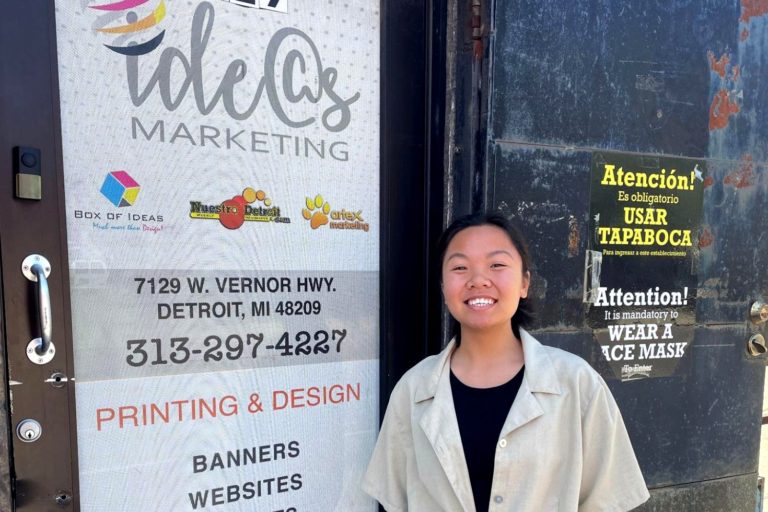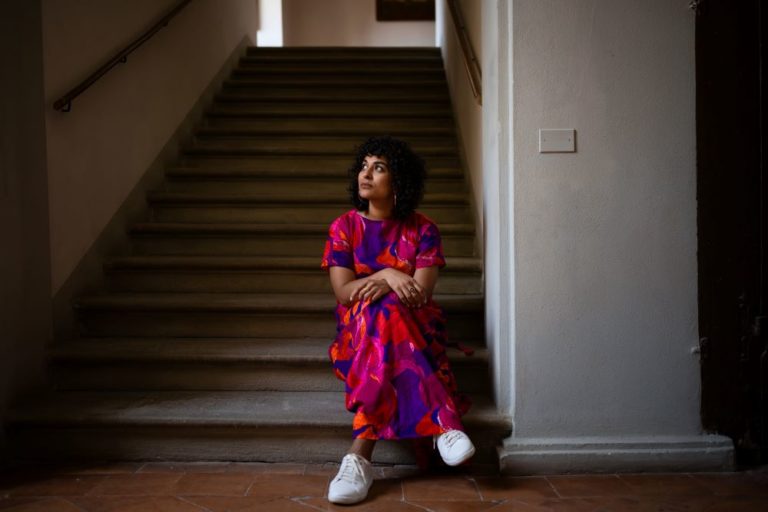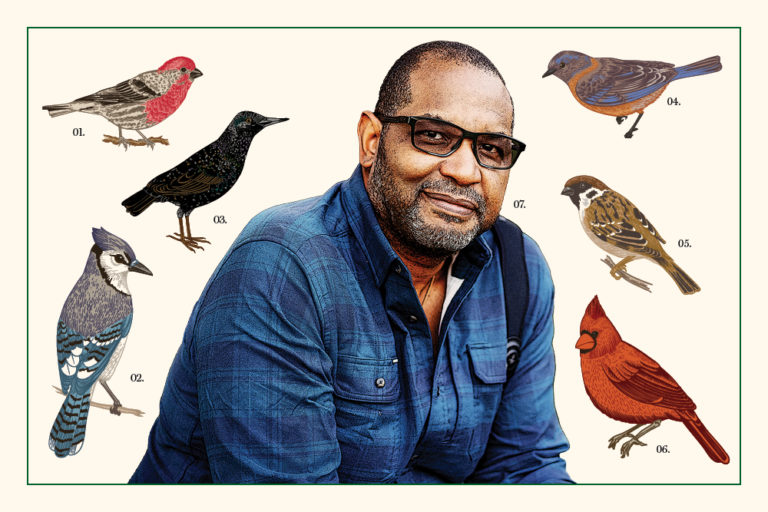The world of language teaching has faced enormous challenges in delivering quality education due to the abrupt transition to remote learning during the COVID-19 pandemic. One of the major challenges is the difficulty of using traditional textbooks in the new reality, and Arabic language programs are no exception.
Two Assistant Professors of Arabic at Michigan State University, Sadam Issa and Ayman Mohamed, are working to address this problem by creating Open Educational Resources (OER) textbooks for elementary Arabic instruction with support from two OER Awards they received.
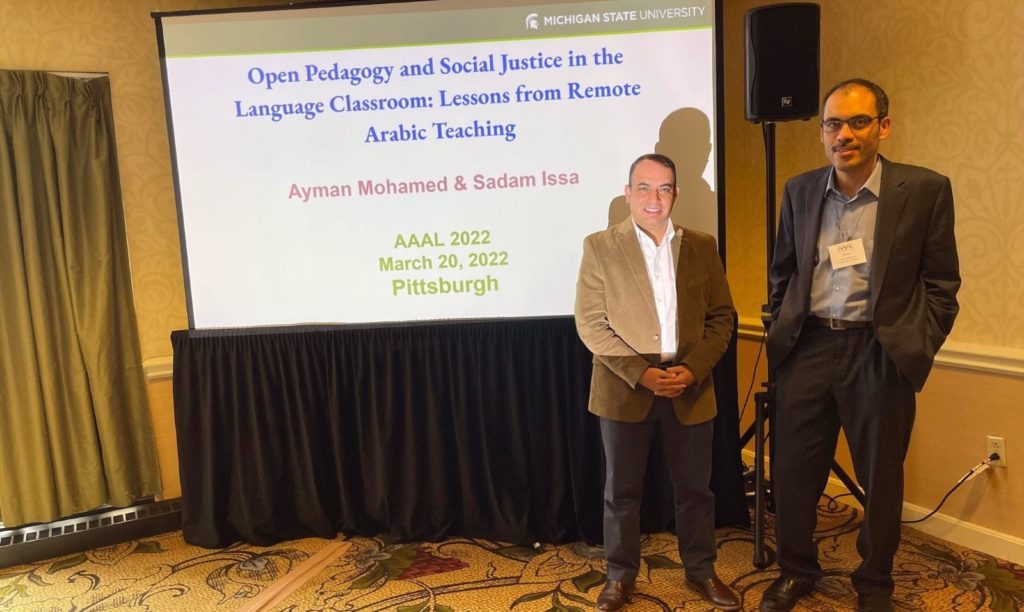
“It is a shared educational space where both students and educators have a voice and can shape their own curriculum, optimizing their learning experience beyond the boundaries of traditional textbooks,” Mohamed said. “It does not get outdated but rather keeps growing because you can simply edit with a few clicks.”
Issa and Mohamed are now promoting their Arabic open resource nationwide and recently presented their project, under the title “Open Pedagogy and Social Justice in the Language Classroom: Lessons from Remote Arabic Teaching,” at the American Association for Applied Linguistics annual conference in Pittsburgh, Pennsylvania.
“It is a shared educational space where both students and educators have a voice and can shape their own curriculum, optimizing their learning experience beyond the boundaries of traditional textbooks.”
Ayman Mohamed, Assistant Professor of Arabic
During their presentation, the Department of Linguistics, Languages, and Cultures professors showcased their model of open textbooks for elementary Arabic classes. The freely available online books, Elementary Arabic I and II, were created to address issues of affordability, access, and equity in providing learning materials for all students and ensuring an optimal and up-to-date experience.
The structure of the books, based on guidelines from the American Council on the Teaching of Foreign Languages (ACTFL), utilize interactive learning tools to enhance students’ self-study experience. They also are designed with the teacher in mind as instructors can benefit from the sequence of the lessons to create their own lesson plans and assignments throughout the semester.
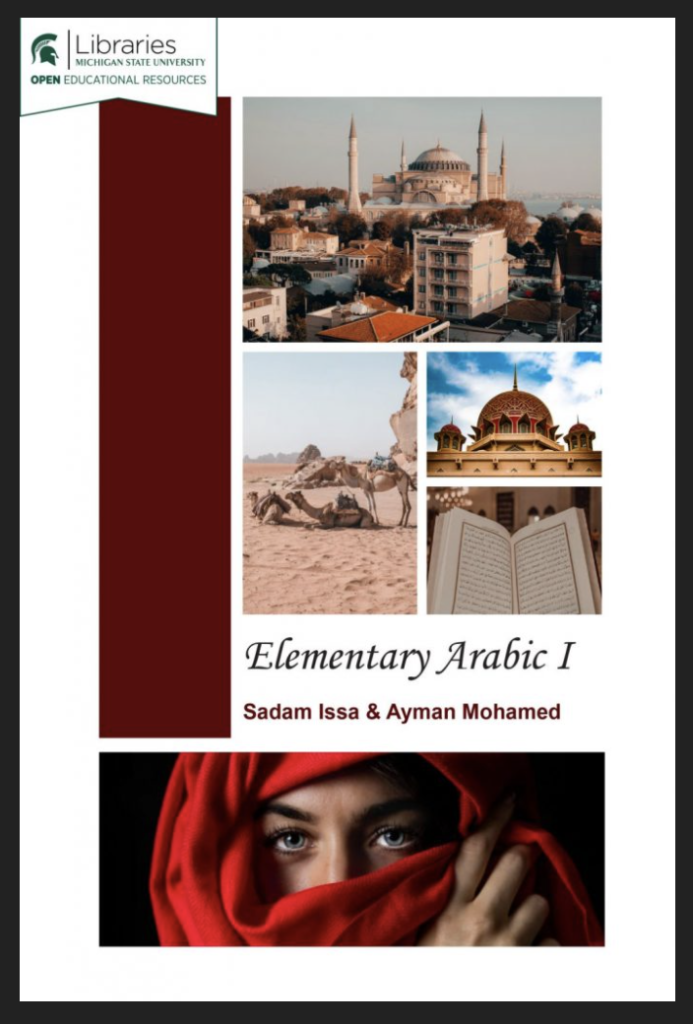
The books cater to both online-only classes as well as hybrid sections. Issa and Mohamed presented survey data from the implementation of the Arabic OER as a hybrid component in first-year classes in the 2020-2021 academic year and demonstrated the integrated curricula that were developed, demonstrating how students’ voices were part of the enhancement of the project.
Inspired by the College of Arts & Letters’ mission to support accessibility, equity, and inclusive pedagogy, Issa and Mohamed intend to move their project to the next level through multimedia enhancements, as well as adding more books for intermediate and advanced students.
Through this educational initiative, we aim to develop a more powerful, inclusive, and strategically unified progressive vision of what learning/teaching foreign languages can and should be.
Sadam Issa, Assistant Professor of Arabic
“Our OER projects were highly motivated not only to overcome the educational challenges imposed by the COVID pandemic but also to reflect the College’s values of equity, community, and openness with a commitment to practice inclusion as a matter of institutional habit,” Issa said. “Through this educational initiative, we aim to develop a more powerful, inclusive, and strategically unified progressive vision of what learning/teaching foreign languages can and should be.”
Issa and Mohamed have been recognized at MSU for their contribution with a 2021 OER Leadership Award and they wish to acknowledge the support and dedication given to them in this project by Regina Gong, MSU OER Librarian.
